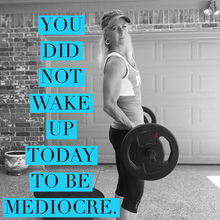What to Expect from Your Ironman Training Plan
- May 18, 2022
- 3 min read
Mary Timoney, Ironman University Certified Coach
Congratulations on deciding to complete an Ironman triathlon! This is a super exciting time for you and in the months ahead you will watch your body transform into a fit, strong, vessel capable of great things!
Now that you’ve decided, where do you begin? I am going to answer that question and many others for you. By the end of this article, you will know exactly what to expect from your customized Ironman training plan.
Coach, how much experience should I have before committing to my first Ironman?
I highly recommend having several races at several different distances under your belt. It’s a really good idea to have completed at least one 70.3 race along with a few Olympic distances races. The shorter distances build your confidence, get you used to racing, and help you to know what to expect from a swim, bike, run event.
Coach, what kind of time commitment are we talking about?
You will need anywhere from 10 to 15 hours per week for training. For more advanced athletes who are looking for a personal best or a podium finish, that number can go up to 18 hours a week. In the early weeks of training, your time commitment is less, but as we build into the longer running and cycling efforts, your hours will increase. Typically, you can expect 2-3 swims, 3 bike rides including a long effort on the weekends, and 3 to 4 runs each week. You will have a short mid-week brick during the week and a longer endurance run on the weekends. I include at least one strength training session with sport-specific exercises for swim, bike, and run.
Coach, how will the progression of training go?
Ironman breaks down the training cycle into a macrocycle which is broken down as follows:
General Preparation-This is where you build your foundation of aerobic endurance, muscular strength, and technique. (About 9 weeks long, average intensity Zone 2.)
Specific Preparation- A continuation of General Preparation with a focus on muscular endurance and speed. (About 6 weeks long, average intensity Zone 3)
Precompetition Phase-This is a short phase focusing on race specific fitness, race tactics, and race skills. (About 3 weeks long, average intensity Zone 3/4)
Competition Phase-Training sessions in this phase emphasize longer sustained intervals, tactical exercises and simulated training sessions to ready athletes for competing. (About 6 weeks long to include Peak weeks. Average intensity Zones 3/4
Transition Phase- This is phase is recovery and rest. Average intensity Zone 1.
Coach, how do I calculate my Heart Rate Zones?
I calculate your training zones based on your Lactate Threshold Heart Rate. This can be found in a few different ways, the most accurate being a run on the treadmill in a lab setting. If this is not an option in your area, I have you run an all-out 5K and record your average HR for the effort.
If you have a power meter, we can do an FTP test to calculate your zones based on %FTP bike power.
Coach, what is the progression of my training plan?
As you progress into your plan, your training volume and intensity will increase over time, although every 3rd week I give you slightly less volume per Ironman protocol. Your long ride and your long run become longer each week as these are critical to completing your race. I load 2 weeks of workouts at a time for you, track your progress each day in Training Peaks, and communicate often with you. For a full Ironman, your longest bike ride will most likely be between 5.5 and 6 hours, and your longest run will be 3 hours. Swims will average about 2500 yards, although during peak weeks I will put in a few longer workouts to acclimate you to the 2.4 mile swim.
Tapering-During the last 3 weeks of training, I will taper your workouts with lower volume and intensity to be sure you are well rested for race day.
Coach, how will I know what to eat and drink?
I use Ironman’s protocol for race nutrition and hydration, and I make sure all of my athletes do a sweat test to determine how much they should drink on the bike and run. I also give you suggestions on what to eat Race morning up until the start of the swim.
Swim Stroke Analysis and Run Gait Analysis-I offer these to help you swim and run more efficiently and with better form. These can be game changing to shave off time from your splits. I do these via video or in person.
You will learn everything you need to know along our journey together, and my number one goal is to get you to the start line feeling fit, ready, and confident. Hiring a triathlon coach is a smart choice to get you through your first Ironman confidently and safely. Want to talk more? Message me HERE for a free 15 minute phone call!

































Comments